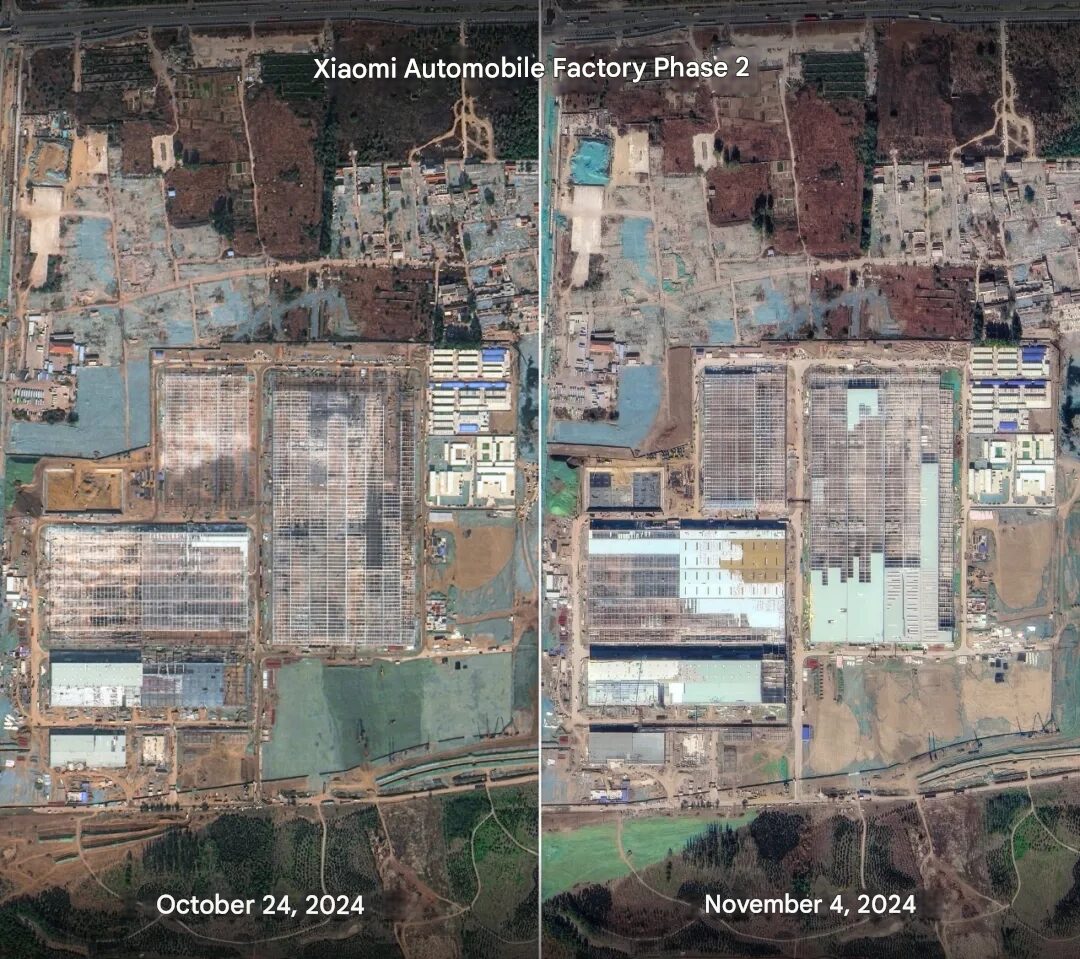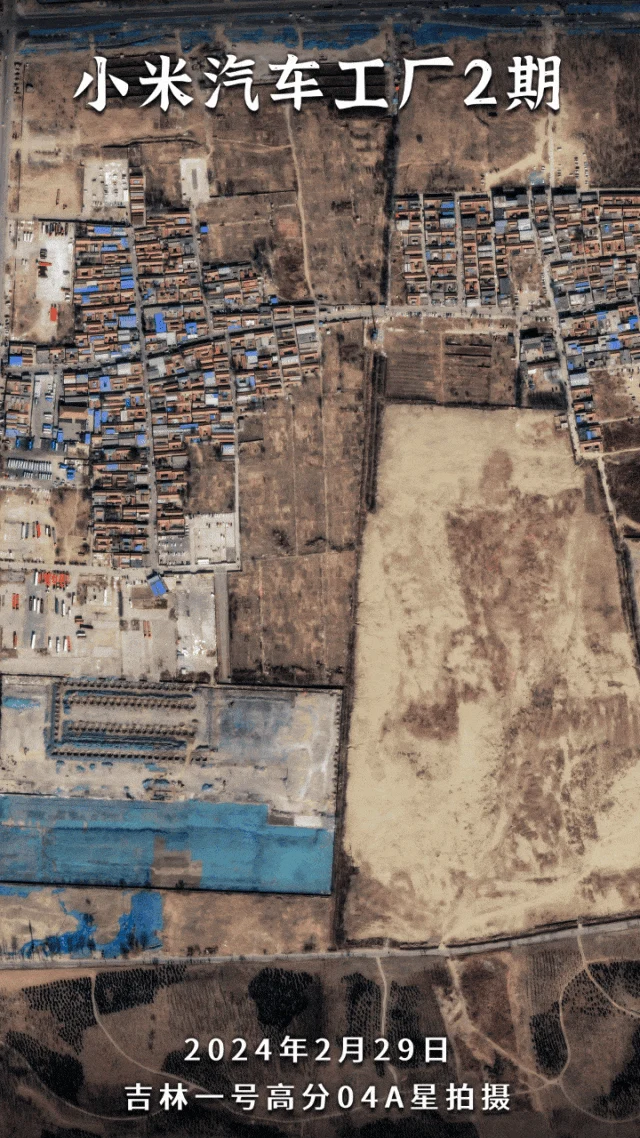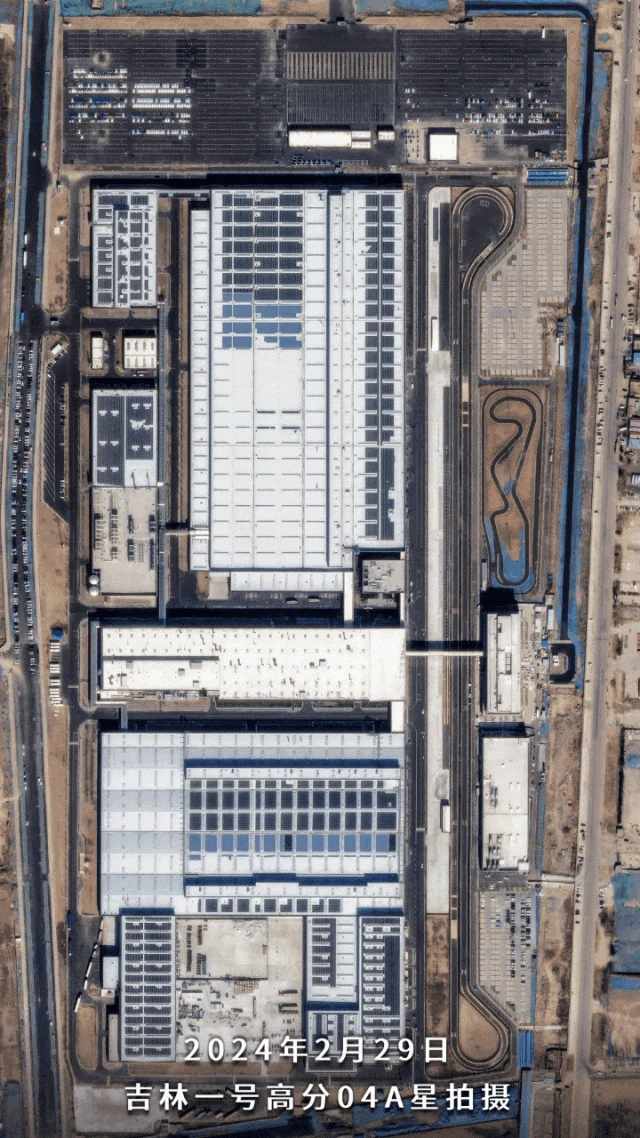Satellite images taken by Jilin-1 satellites show that the Phase II factory of Xiaomi Auto has recently expanded rapidly while the company is gearing up its manufacturing to meet surging demand. The major expansion underlines ambitious goals that Xiaomi has in the EV industry, where the brand has utilized rapid traction with its model Xiaomi SU7. With the rising demand, it will surely put pressure on the production capacity of Xiaomi Auto.
On November 1, Xiaomi Motors also said the monthly delivery volume of the SU7 model has exceeded 20,000 units for the first time, with the capacity utilization rate reaching an astonishing 160%. Once headed by the company: issued a target of 100,000 annually, which will be pulled forward to the end of November.
This is a strong demand that throws up a hitch because the current manufacturing capacity of Xiaomi is strained to cope with the pressure of orders, and it forces the company to expedite its factory expansion plans.
Construction of Phase II Factory in Full Swing
To make this burden a little easier on it, Xiaomi Auto is aggressively developing its Phase II factory. Last month, a big milestone in the construction of the body shop at the Phase II plant has been reached: capping has been completed. The company has built under a double shift-constructing mode that allows it to take less time; hence, this project is expected to be completed by mid-June next year while production may begin between July and August 2025.
Once it goes into production, the Phase II factory is expected to increase Xiaomi Auto’s annual production capacity to 300,000 units-a pretty high jump that would ease some delivery bottlenecks brought about by high consumer demand.
Location and Infrastructure Improvement
The Phase II factory stands just next to Xiaomi Auto’s Phase I factory, separated only by a road between the two facilities. This strategic proximity will help in considering facilitating logistics and operational efficiency. Apart from expanding the factory, Xiaomi is also building a wider road between the two factories, which, together with the improved flow of materials and vehicles, is sure to improve efficiency. This infrastructure enhancement underlines Xiaomi’s long-term commitment to building a highly efficient EV manufacturing hub.
Xiaomi is aggressively expanding its foothold within the EV market. The astonishing success of Xiaomi with the SU7 model has earned it a serious competitor tag in the EV market. Also, increasing its production capacity and output would help the company hold firmly in the competitive electric vehicle industry, sustaining its growth momentum. Phase II factory expansion is the verification of commitment by Xiaomi, meeting the demand of consumers and strengthening the capability of production for a firm position within the electric vehicle space.
As the construction of Xiaomi Auto proceeds on an accelerated path for its Phase-II factory, it might set up new targets for the EV industry. The higher production capacity will not only enable Xiaomi to reach its current and closer delivery targets but also set a platform for further growth over the forthcoming years.


 Emir Bardakçı
Emir Bardakçı





I love how detailed your explanation is—well done!
Good